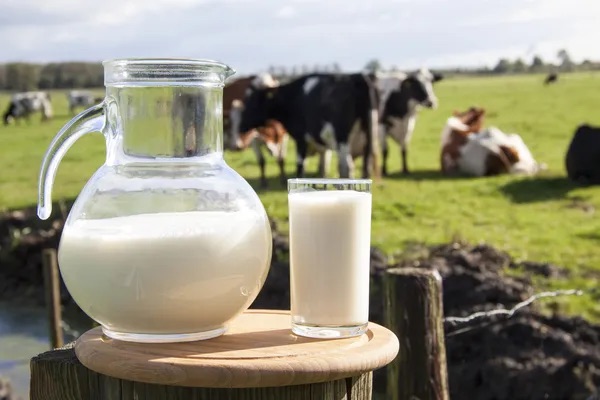Read in
Despite the fact that milk production has witnessed a significant leap from 229,000 tonnes in 1972 to 531,587 tonnes in 2021, representing a growth rate of 1.89 percent, experts have projected that Nigeria’s milk market will grow by 6.56 percent in the next five years resulting in a market volume of $27 billion by 2028.
With the annual demand for fresh milk production in Nigeria hovering around 560,000 to 570,000 tonnes of milk, Nigeria’s demand for milk is estimated to be about 1.7 million tonnes per year, hence, the need for both local and foreign investment to bridge the demand gap cannot be overemphasised.
Stakeholders in the sector have recommended measures that can further boost the dairy industry in the country. They said there must be compliance of the government to the 2003 Maputo declaration of 10% annual budgetary allocation to agriculture by African Union member states.
An agribusiness expert, David Muraina, said the Bank of Agriculture Development and Commercial banks in Nigeria should provide flexible collateral requirements and reduce interest rate on lending to smallholder dairy farmers. He also said that the formation and registration of dairy value chain clusters and cooperative societies will go a long way to boost the sector.
Muraina also recommended local fabrication and production of food-grade dairy equipment for milk collection transportation and processing adding that the improvement in investment in animal health services to reach community levels will be an advantage to the sector.
He urged the government to come up with a policy that will scale up milk production, collection and processing in the country and create enabling environment for increased activities along the dairy value chain. He also commended the private sector, like Arla Foods, for its recent investment in the construction of a state-of-the-art dairy farm in Kaduna and its significance in boosting Nigeria’s dairy sector.
Recently, Arla Foods, maker of Dano Milk inaugurated its state-of-the-art dairy farm in Kaduna as part of the company’s efforts to ensure sustainable milk production in Nigeria. The farm was commissioned last month by former governor of Kaduna State, Mallam Nasir El-Rufai, who described the dairy farm as a significant milestone and game-changer for the dairy sector in Nigeria.
Executive vice president, Arla Foods International, Simon Stevens, described the completion of the farm as a massive achievement for Arla Foods in its journey in Nigeria and globally.
He disclosed that the project was conceived in line with the quest to achieve a number of United Nations’ Sustainable Development Goals, including 2, 8, 12 and 17.
“This milestone symbolises what can be achieved with strong partnerships. We can see how the contribution of the Kaduna State Government, the Federal Ministry of Agriculture and Rural Development, NGOs, the farming community, and many more have helped to deliver a big project,” Stevens said.
In his remarks, Danish Ambassador to Nigeria, Sune Krogstrup, noted that the project demonstrates Arla Foods’ commitment to boosting the local dairy segment of the agricultural value chain that would positively impact the economy of Kaduna State and contribute significantly to Nigeria’s GDP.
On her part, the Head of Arla Foods West Africa, Mrs. Anna Månsson, noted that the commissioning of the project is a culmination of a series of events that began with the signing of a lease agreement with the Kaduna State Government in 2021.
Also speaking, vice president of Finance for the International Zone, Arla Foods, Steen Futtrup stated that the official opening of the farm is a clear example of the company’s commitment to Nigeria.
Speaking on the features of the farm, managing director, Arla Nigeria, Peder Pedersen, stated that the project, which covers 400 hectares of land with the capacity to house 400 milking cows and 1,000 animals, is designed to ensure optimum animal welfare and productivity. In his goodwill message, the Emir of Zazzau, Ahmed Nuhu Bamalli, noted that he is proud to be associated with such a massive investment as this would bring about economic transformation to the people of Kaduna State and beyond. Managing director of Kaduna Markets Management and Development Company, Tamar Nandul, stated that the agency is proud to be associated with Arla Foods and the value addition to Kaduna state investment.
Experts said more of such investments by the private sector should be encouraged adding that government at all levels need to encourage education and capacity building of the unschooled smallholder farmers. ‘‘There is a need to update data on dairy production and livestock to reflect true production and consumption outlook and for adequate planning and adoption of Good Animal Husbandry Practices (GAHPs) by dairy farmers to ensure hygiene and sustainable environment,’’ said Emeka Oji, a smallholder farmer.



